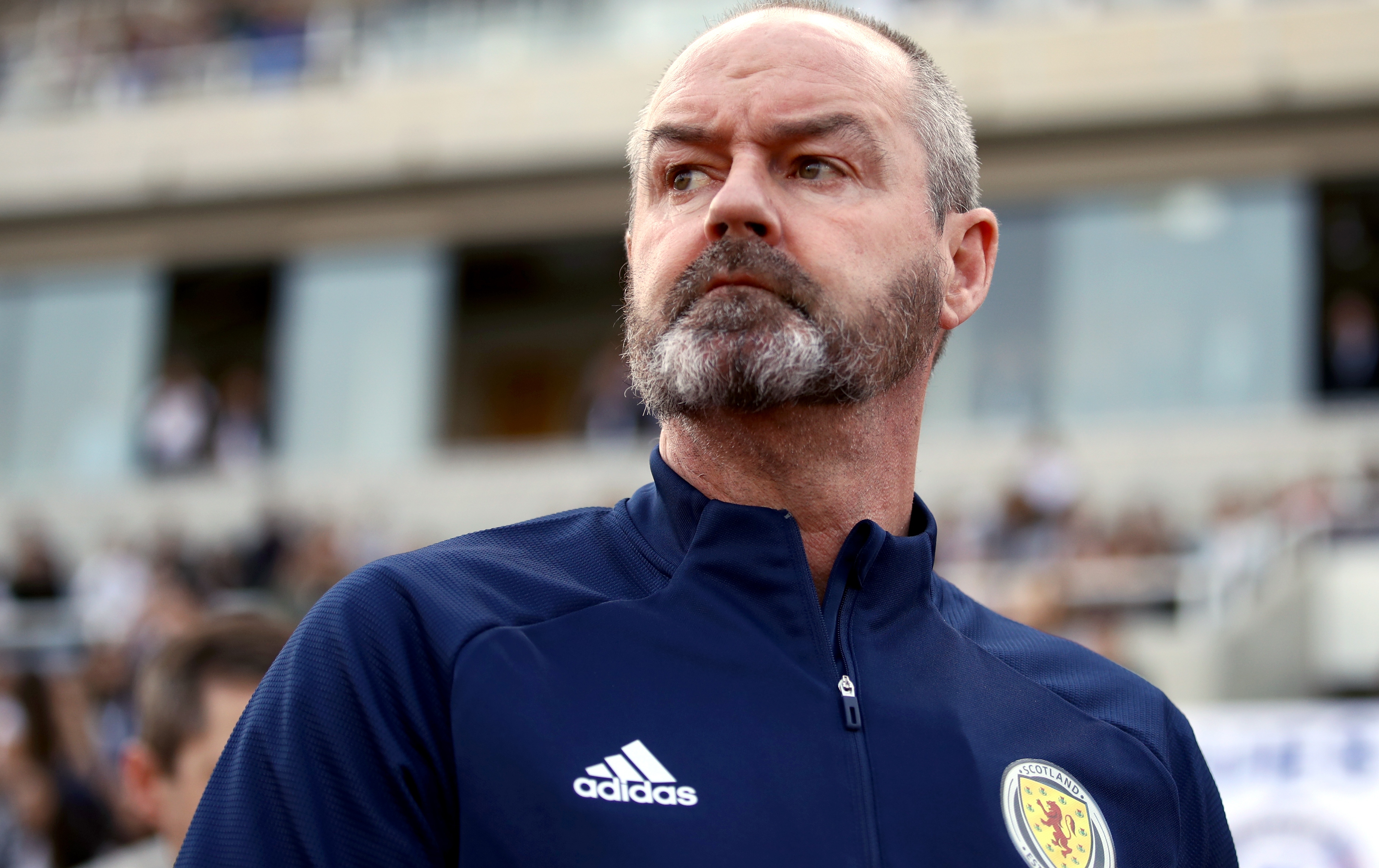FourFourTwo's 50 Best Football Managers in the World 2015: 45-41
Continue with our run-down of the best bosses around; including the Mourinho tormentor, rock star hero and an international guru...
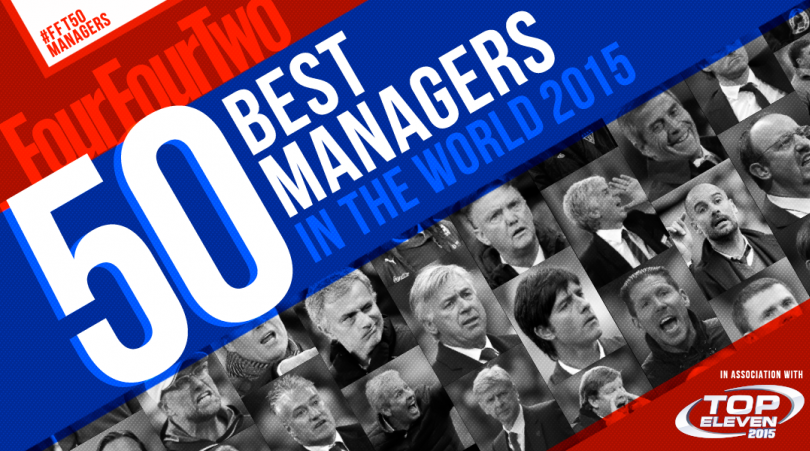
The best features, fun and footballing quizzes, straight to your inbox every week.
You are now subscribed
Your newsletter sign-up was successful
Want to add more newsletters?

Five times a week
FourFourTwo Daily
Fantastic football content straight to your inbox! From the latest transfer news, quizzes, videos, features and interviews with the biggest names in the game, plus lots more.

Once a week
...And it’s LIVE!
Sign up to our FREE live football newsletter, tracking all of the biggest games available to watch on the device of your choice. Never miss a kick-off!
Join the club
Get full access to premium articles, exclusive features and a growing list of member rewards.
Words: Zee Ko, Greg Lea, Alex Holiga and Nick Ames.
45) Tony Popovic (Western Sydney Wanderers)
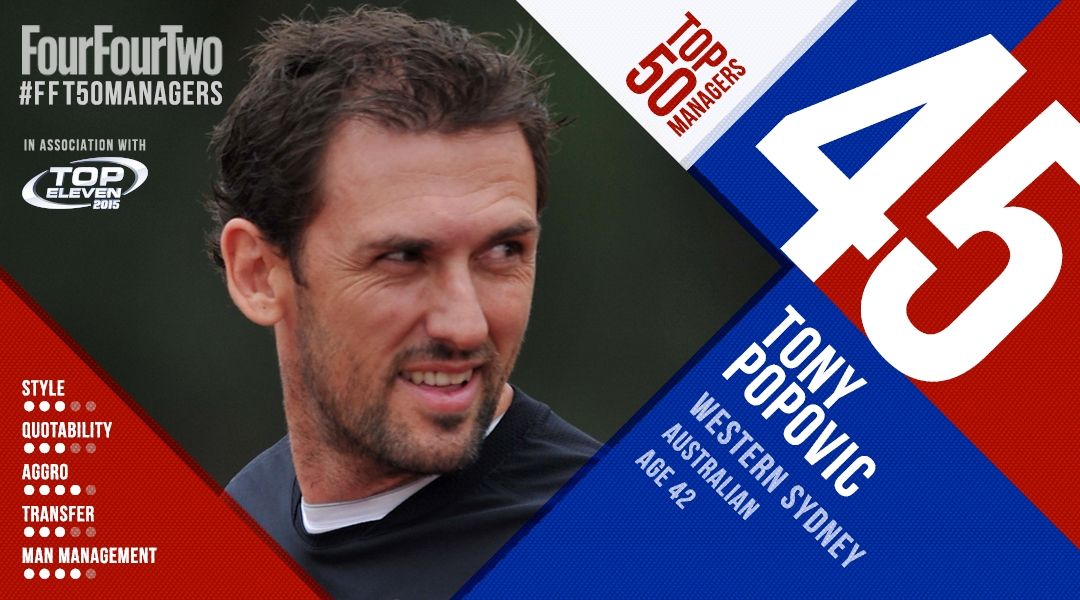
When I came to the Wanderers I found a new life. We all followed Popa and believed in him because Popa believed in each of us. I've never had a better coach - I think he helped save my career
A successful playing career doesn’t necessarily translate to similar results when it comes to coaching, but Popovic has proven an exception to the rule in his early years as a head coach.
Returning from England to take the Western Sydney Wanderers job, the former Australia international showed that his four-year apprenticeship at Sydney FC and Crystal Palace was time well spent.
The A-League’s newest franchise hit the ground running, emerging as league premiers and making it to the Grand Final at the first time of asking as Popovic put together a winning side of rookies and rejects – no mean feat considering the salary cap.
Western Sydney soon showed their debut season wasn’t a fluke, as their coach of the year winner made (and narrowly lost) a second Grand Final in a row. But if fans were feeling downhearted after the pair of near misses, there was a welcome surprise around the corner as the Wanderers upset the odds to beat Al-Hilal and take the 2014 AFC Champions League for the first time in Australian history.
While their latest season has been disappointing on many fronts, the Wanderers coach’s star remains high and there’s every indication he’ll be given a chance to rebuild in 2015. ZK
The best features, fun and footballing quizzes, straight to your inbox every week.
44) Gian Piero Gasperini (Genoa)
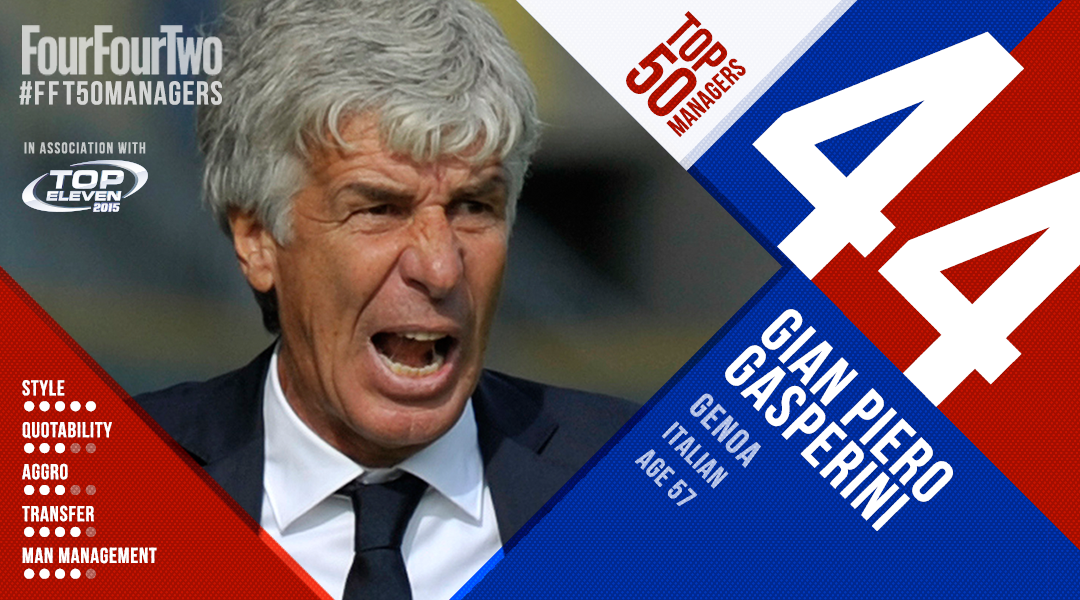
Hounded out of Inter after just six games in 2011, Gasperini was accused of being wedded to a singular tactical vision that couldn't work at such a big team. Three seasons later, he was closer to making a Champions League return than the Nerazzurri
“The coach who put me in the most difficulty,” Jose Mourinho declared in 2009 after a meeting between his Inter side and Gasperini’s Genoa. “Every time I changed tactics, he adapted.”
Gasperini has been known as one of Italy’s brightest tacticians for years now. He first took charge of the Rossoblu in 2006, immediately leading the peninsula’s oldest surviving club to promotion before ending the subsequent Serie A season in fifth and qualifying for the Europa League.
His work in the north-west didn’t go unrecognised, and Inter appointed Gasperini as their coach in 2011. Things didn’t go so well at the San Siro, however, and the former midfielder was sacked following a run of four defeats in his first five games.
After becoming trigger-happy Palermo owner Maurizio Zamparini’s latest victim in early 2013, Gasperini returned to Genoa, picking up from where he left off by steering them clear of relegation danger.
A devotee of the Marcelo Bielsa way of playing, the 57-year-old demands hard pressing and a high tempo from his team, who usually line up in a 3-4-3 formation. Genoa’s sixth-placed finish last term – higher than both Milanese sides, no less – was evidence of his excellent credentials. GL
43) Slaven Bilic (West Ham)
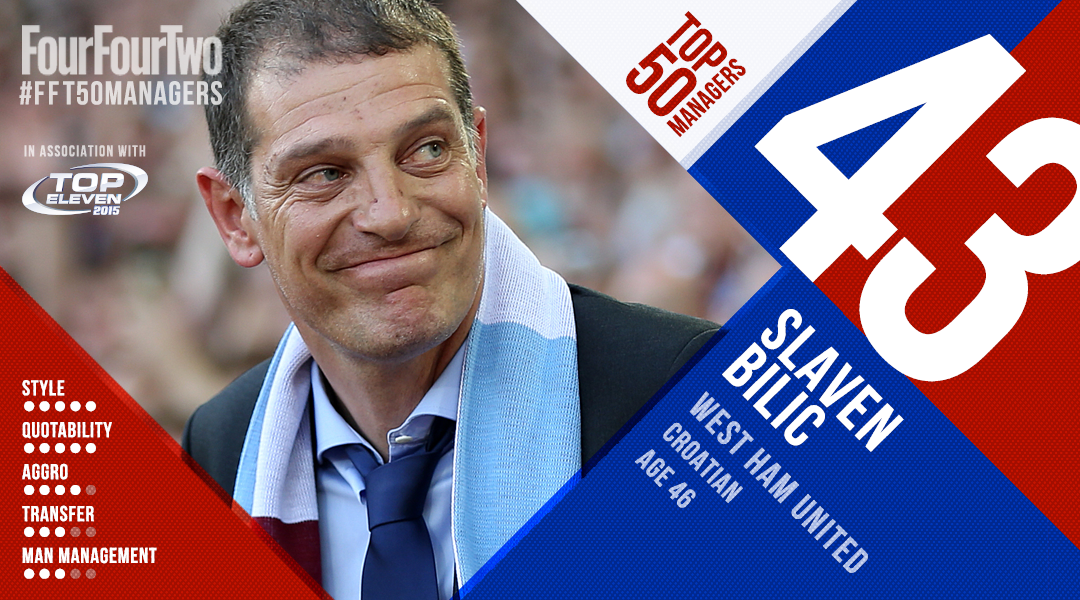
His strength is man-management. He treats his players as friends yet still retains their respect. He once saw me and Vedran Corluka standing by the bus, bored, when we were with the U21s. He gave us money to go into town and we’ve never forgotten that
When Bilic was leaving Istanbul in early June, Besiktas supporters met him at the airport to say goodbye. They carried him on their shoulders and presented the outgoing boss with a t-shirt that said, in his native Croatian: “Farewell, grand commander.”
West Ham may have gotten themselves one of the coolest personalities in the Premier League, but what the tattooed, guitar-strumming, multilingual, soundbite-tossing anglophile socialist with a law degree doesn’t promise is success.
Although on these shores he’s still perhaps best remembered for that Wally With The Brolly episode in 2007 featuring Steve McClaren, Bilic never actually won anything and has had his share of dark days – like those two thrashings at the hands of Fabio Capello’s England in the 2010 World Cup qualifiers, or his stint at Lokomotiv Moscow, which proved largely unsuccessful.
Yet, despite playing away from home for the whole of last season while the club’s new stadium was being built, his Besiktas side was fully in contention for the title alongside their far richer rivals, Galatasaray and Fenerbahce, almost until the end. Bilic kicked both Tottenham and Liverpool out of Europe, having given Arsenal a very good run for their money in the Champions League play-off round. He now appears ready and England will surely love him – at least for a while. AH
INTERVIEW Slaven Bilic: I used to play basketball… you didn’t know that, did you?
FEATURE Hannibal masks and camp classics: the story of Slaven Bilic’s guitar days
42) Herve Renard (Lille)

I'm sad because this is a coach who means much to me. He always trusted me even when I was playing little at PSG. Somehow, he was forced to make this decision [to join Lille]
The fact that Renard still seems a sub-radar pick despite being the only man to have won two Africa Cup of Nations trophies belies the scale of his achievement. It’s a notoriously difficult competition to win, and the super-suave Frenchman has done it in different ways: first with a battling Zambia side that exceeded the sum of its parts in 2012; next with an Ivory Coast team whose ‘golden generation’ had no international trophies to show for their stellar talents until February 2015.
Renard, who spent a brief spell in charge of Cambridge United in 2004, is a clear thinker and an intelligent tactician whose teams have tended to err on the side of caution – treating tournaments like a game of chess. Ivory Coast were scintillating when they did stretch out, though, winning thrillers against Algeria and Democratic Republic of the Congo in Equatorial Guinea, and Renard’s task now is to show that he can find different ways to skin a cat every week.
That’s because he’s landed the biggest club job of his career, taking over at Lille. His last spell in Ligue 1, with Sochaux, ended in relegation and if Renard can produce domestically with les Dogues then he’ll be worthy of an even higher place on this list next time. NA
41) Lars Lagerbäck (Iceland)
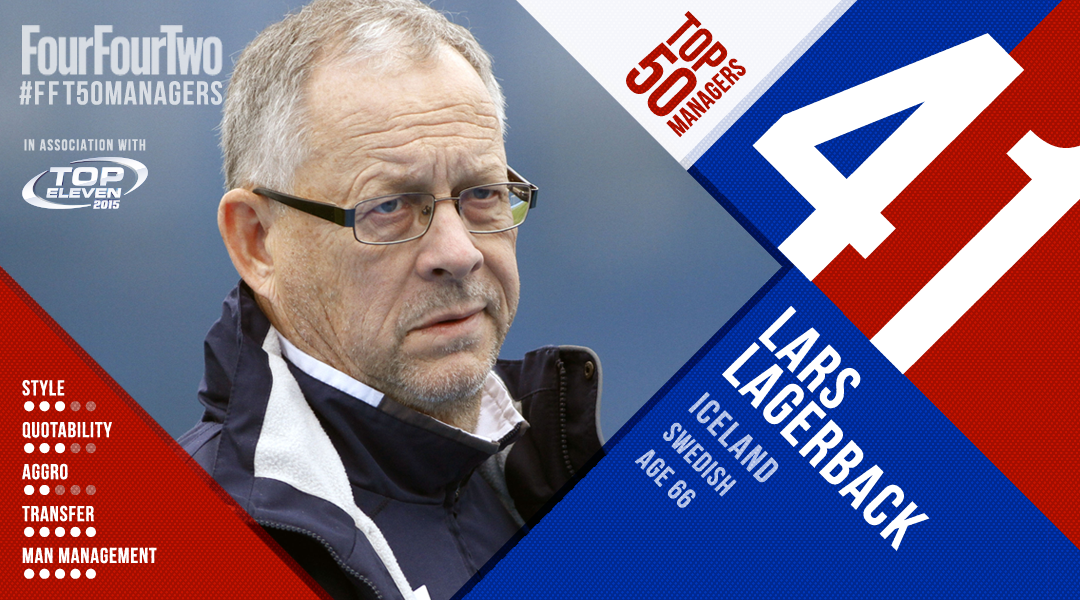
Lagerback is a good motivator, our leader. Moreover, he’s a great personality. We have many good players but we also want them to work for each other. It’s something that Lagerback says is No.1, two and three
If, as seems certain, tiny Iceland make their major tournament debut at Euro 2016 next summer, it will crown a stunning four years at the helm for Lagerbäck. Iceland, population 329,000, had never come close to causing a stir at international level and it seemed like a hiding to nothing for the experienced Swede. But Lagerbäck saw rich potential in a group of talented young players and led them to the World Cup qualifying play-offs – in which they just lost out to Croatia.
Some countries fade after one-off shots at the big time but Iceland play on their own terms now. Lagerbäck has moulded a tight, technically adept unit with a club side mentality and they currently sit five points clear of third-placed Holland – who they beat 2-0 at home – in Group A of the Euro 16 qualifiers. A win in Amsterdam in September would virtually finish the job.
Lagerbäck, who turns 67 on July 16, is a seasoned campaigner at international level. Sweden qualified for five major tournaments on his watch, first as joint-coach with Tommy Söderberg and them on his own. He also led Nigeria to the 2010 World Cup. Few share his rigorous attention to detail; add to that a team capable of following instructions to the letter and his Iceland side are a serious proposition. NA
FFT's 50 Best Football Managers: 50-46 • 45-41 • 40-36 • 35-31 • 30-26 • 25-21 • 20-16 • 15-11 • 10 • 9 • 8 • 7 • 6 • 5 • 4 • 3 • 2 • 1
#FFT50MANAGERS See our full list of top 50 managers in the world and features on them here
 Join The Club
Join The Club










